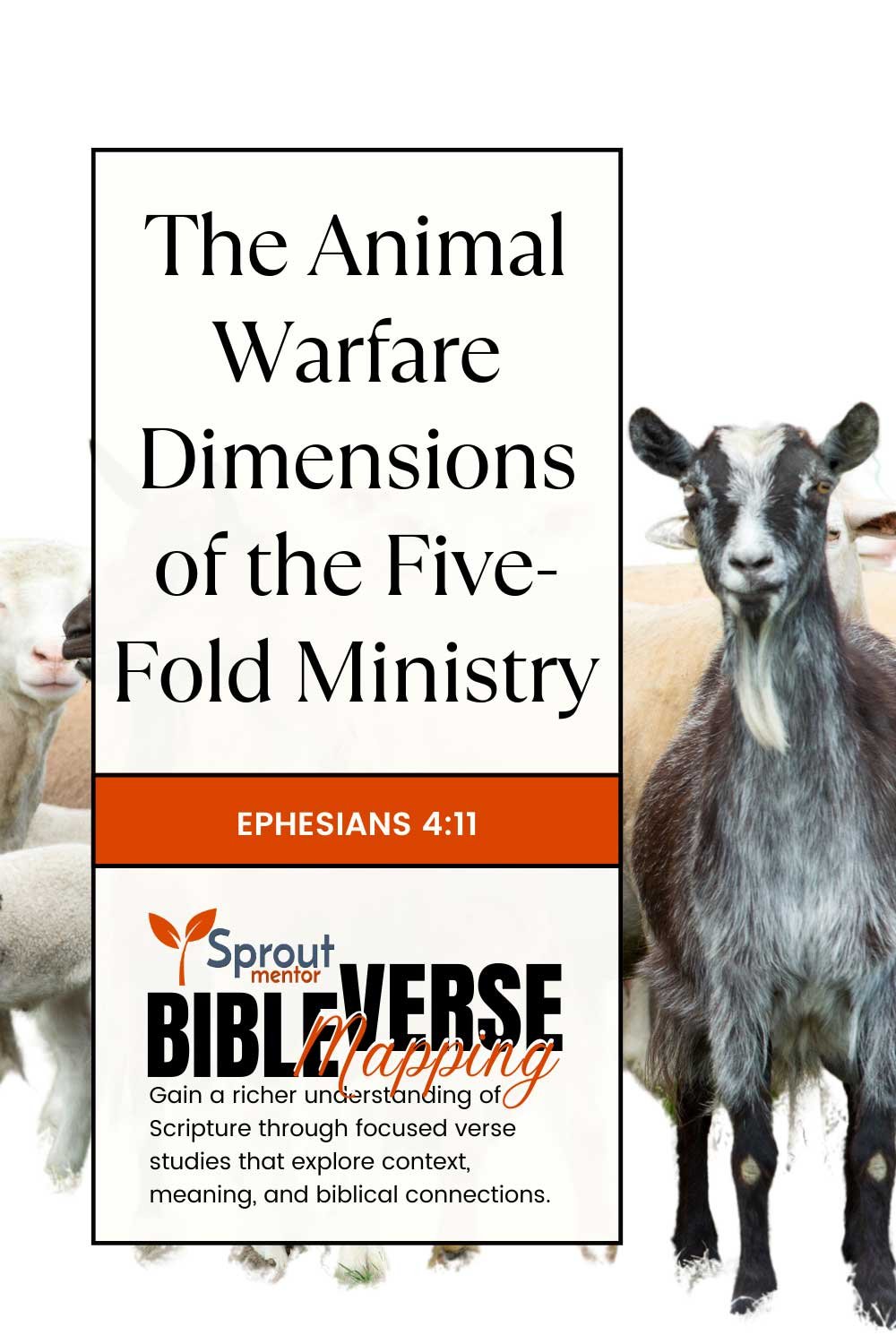3 Ways You Can Lose YOUR Crown To Another Man (Revelation 3:11)

Share This Blog Post On:
Short on time, but big on faith? We break down complex topics into easy-to-understand chunks, making the Bible accessible to everyone. Join us for answers to your Bible questions and encouragement for your daily walk with God. Click here to grow your faith, one byte at a time!
“I am coming soon. Hold fast what you have, so that no one may seize your crown.” (Revelation 3:11)
The Bible emphasizes that after death, the next agenda is judgment (Hebrews 9:27). At this judgment, some will receive commendation, while others will face rebuke. As described in 2 Corinthians 5:10, “For we must all appear before the judgment seat of Christ, so that each one may receive what is due for what he has done in the body, whether good or evil.” One of the positive rewards for faithfulness will be in the form of crowns such as:
- The Incorruptible Crown: Reserved for those who faithfully finish the race, as described in 1 Corinthians 9:25.
- The Crown of Rejoicing: A reward for those who disciple and win souls for Christ (1 Thessalonians 2:19).
- The Crown of Glory: Given to shepherds who diligently care for God’s flock (1 Peter 5:4).
- The Crown of Life: Bestowed upon those who endure persecution and trials, even unto death, like Stephen (James 1:12, Revelation 2:10).
- The Crown of Righteousness: For those who produce good works and live in anticipation of Christ’s return (2 Timothy 4:8).
Therefore, the concept of “crowns” in Scripture symbolizes divine rewards given to believers for their faithfulness, service, and perseverance in fulfilling God’s purposes. However, in Revelation 3:11, Jesus issues a solemn caution that unveils a sobering reality—that a person can lose their crown to another. But how is it possible for someone to lose their crown? What circumstances or spiritual conditions create an opening for this loss? In the following discussion, we will explore the top three situations and behaviors that can lead to the forfeiture of one’s crown, as well as the biblical instructions for safeguarding what God has entrusted to us.
#1 – Profanity or Secularity
The first way a man can lose his crown is through profanity or secularity. This principle is powerfully illustrated in the story of Esau, recorded in Hebrews 12:16-17. The passage warns believers:
“Lest there be any fornicator, or profane person, as Esau, who for one morsel of meat sold his birthright. For ye know how that afterward when he would have inherited the blessing, he was rejected: for he found no place of repentance, though he sought it carefully with tears.”
The word “profane” has its roots in the Latin term pro-fanum, which means “outside the temple.” This imagery suggests something ordinary, common, or outside the sacred enclosure of God’s presence. Esau epitomized this mindset—he lacked reverence for what was holy and treated his divine inheritance as something expendable.
In Genesis 25:29-34, Esau willingly exchanged his birthright for a simple bowl of lentil stew, a decision that reveals his disregard for the sacred. The birthright in ancient times symbolized not just material inheritance but a spiritual legacy, including a covenant relationship with God. Yet, Esau was driven by his immediate physical hunger and failed to recognize the eternal value of what he possessed.
Later, in Genesis 27:30-40, when Esau sought to reclaim the blessing with tears, he was rejected. This rejection did not mean he could not seek God’s forgiveness, for God always welcomes the truly repentant. Rather, it highlights that certain actions can have irreversible consequences. Esau’s disregard for his birthright had permanent results—it could not be undone because he had despised it in the first place.
This story offers a sobering lesson for Christians today. Many believers fall into the same trap of devaluing their spiritual birthright. They trade the richness of intimacy with God for the fleeting satisfaction of worldly pleasures, much like Esau sold his birthright for a single meal. This compromise may manifest in prioritizing career success, relationships, or personal gratification over time spent in God’s presence, obedience to His Word, and the pursuit of His kingdom.
The consequences of such choices can be spiritually devastating. A momentary lapse of judgment or consistent neglect of one’s spiritual inheritance can lead to the forfeiture of blessings, opportunities, and even divine assignments. Therefore, guard your calling and crown with vigilance, resisting the pull of secular distractions and the allure of the immediate over the eternal.
Esau’s story is a timeless warning against living without a “sacred enclosure” in one’s life—a space where God is honored above all else. To avoid losing their crown, believers must cherish their spiritual inheritance, recognize its immense value, and live with an eternal perspective, resisting the lure of profanity and secularity.
#2 – Disobedience to the Commandments of God
Another of the critical ways a man can lose their crown to another is through disobedience to the commandments of God. This is vividly illustrated in the life of King Saul, whose disobedience led to the loss of his kingdom. Saul, chosen and anointed by God, was given clear instructions regarding his role and boundaries as king. However, in a moment of crisis, he transgressed these boundaries by performing a sacrifice—an act reserved for the priests.
In 1 Samuel 13:11-12, Saul explained his actions, citing three primary pressures: fear of losing the people’s support, impatience with divine timing, and intimidation by enemy forces. While these pressures seemed justifiable in human reasoning, Saul’s logic did not align with God’s commandments. This act of disobedience revealed a deeper issue: Saul prioritized his circumstances and personal reasoning over the explicit command of God.
The consequences of Saul’s actions are outlined in 1 Samuel 13:13-14, where Samuel rebuked him. God viewed Saul’s disobedience not merely as a mistake but as rebellion, which ultimately cost him his throne. This teaches us a vital principle: in God’s kingdom, obedience is not optional. His commandments are not suggestions but decrees from the King of kings. When someone violates a king’s orders, it is considered rebellion, no matter how valid the reasoning may seem. In kingdom matters, what matters is fulfilling the king’s will, not offering excuses or alternative actions. Saul’s disobedience, while possibly seen as a pragmatic solution by others, rendered him unfit for his role in God’s eyes. As a result, God reassigned the kingdom to someone else—David, a man after God’s own heart, who was willing to obey Him completely.
This principle is echoed in the parable of the Talents (Matthew 25:14-30), where the unfaithful servant who failed to fulfill his master’s expectations had his talents taken away and given to another for he was not a good steward. Similarly, when God’s commandments are not obeyed, He does not change His divine plan; instead, He changes the person tasked with executing it. As stated in Ezekiel 21:27, God will “overturn, overturn, overturn it” until He finds the right candidate to fulfill His purpose.
For believers today, this serves as a sobering reminder to take God’s commandments seriously. Our faithfulness in following His instructions places us in the spotlight of His judgment and reward. If we choose to neglect or substitute His will for our own, we risk hearing the devastating verdict of “no work done.” This is because the reward in God’s kingdom is based on labor and faithfulness, as underscored in 1 Corinthians 3:8 and Galatians 6:7. Worse still, our failure may open the door for another to fulfill our calling and earn the crown intended for us. As emphasized in John 14:15, Jesus said, “If you love Me, keep My commandments.” True love for God is demonstrated through obedience. The stakes are high, and the consequences eternal
#3 – Reluctance
An illustrative example of this situation is found in Acts 10, where Peter was initially chosen by God to introduce the Gospel to the Gentiles. Peter’s vision of unclean animals, accompanied by the command to “kill and eat,” signified God’s call to embrace a new dimension of ministry beyond Jewish traditions. Despite the vision being repeated three times and reinforced by the declaration, “What God has cleansed, you must not call common” (Acts 10:15), Peter’s response was hesitant and resistant: “Not so, Lord.” Peter’s reluctance stemmed from his deeply ingrained Jewish worldview, which clashed with the radical inclusivity of the Gospel message to the Gentiles. Despite God’s persistent effort to persuade Peter, his lack of willingness opened the door for another to take his place.
This is where Apostle Paul entered into the picture. Unlike Peter, Paul demonstrated a willing and submissive heart. When confronted by Jesus on the road to Damascus, Paul’s immediate response was, “What shall I do, Lord?” (Acts 22:10). This willingness led to clear commissioning from Jesus: “But rise and stand on your feet; for I have appeared to you for this purpose, to appoint you as a servant and witness of what you have seen and what I will show you” (Acts 26:16). Paul’s readiness to embrace God’s call without reservation positioned him to fulfill the ministry that was initially intended for Peter.
Paul’s ministry to the Gentiles became a defining aspect of his apostleship. He proudly acknowledged this role, stating in Romans 11:13, “I am an apostle to the Gentiles, and I magnify my ministry.” He embraced this grace and responsibility with great zeal, as seen in Romans 15:15-16, where he describes his calling as a minister to bring the Gospel to the Gentiles as an offering pleasing to God. Paul’s diligence, fueled by his willingness, enabled him to carry out the mandate detailed in Acts 26:17-18: “I now send you, to open their eyes, to turn them from darkness to light, and from the power of Satan to God, that they may receive forgiveness of sins and an inheritance among those who are sanctified by faith in Me.”
This powerful contrast between Peter and Paul underscores the critical role of willingness in preserving one’s divine assignment. Peter’s hesitation did not make him lose his salvation or his role in God’s kingdom, but it cost him a specific opportunity to spearhead the mission to the Gentiles. Meanwhile, Paul’s readiness enabled him to receive a grace originally intended for Peter, illustrating that God’s purposes will always prevail, even if He must find another willing vessel.
God is always seeking willing vessels to accomplish His purposes on Earth. This principle is evident throughout Scripture, as God does not impose His will on humanity but partners with those who are open and ready to obey. As Psalms 110:3 declares, “Your people shall be willing in the day of Your power,” showing that the readiness of individuals to respond to God’s call is pivotal. The heavens belong to the Lord, but the earth has been entrusted to mankind (Psalms 115:16), making human willingness a key element in fulfilling divine mandates.
As believers, the call to arise and fulfill God’s purpose should not be ignored, even when feelings of inadequacy arise. Romans 9:16 reminds us that success in divine assignments is not about human effort or ability but depends on God’s mercy. To safeguard your crown, cultivate a willing spirit, respond promptly to God’s instructions, and trust in His grace to equip you for the task.
In conclusion, the warning in Revelation 3:11 reminds us of the weight of our spiritual responsibility. Holding fast to what we have received from God requires vigilance, faithfulness, and an eternal perspective. The examples of Esau, Saul, and Peter serve as both warnings and lessons, illustrating the consequences of profanity, disobedience, and reluctance. Yet, in God’s grace, He provides opportunities for restoration when we realign ourselves with His purpose. Let us strive to finish well, guarding our crowns and fulfilling His divine purpose in our lives by running this race with endurance, keeping our eyes on Jesus, the author and finisher of our faith (Hebrews 12:1-2).
Continue Reading More On:
|







